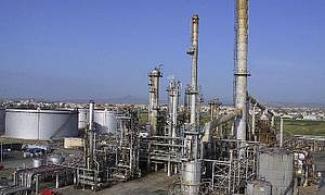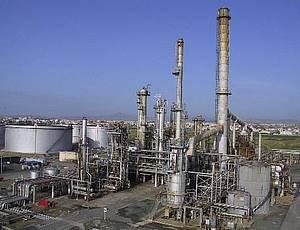
Otherwise, the federal government’s recently revealed mindset to withdraw all forms of subsidies on prices petroleum products would have been taken as another good step in President Jonathan’s trumpeted transformation agenda, but for a caveat which borders heavily on policy inconsistency or more aptly confusion. No doubt, it is now very clear that the way our people in government think is completely different from what obtains elsewhere.

As President Goodluck Jonathan submitted the revised 2015 budget figures to the National Assembly, he proposed to spend 458.68 billion naira ($2.59 billion) on petrol subsidy in 2015, down from 971.14 billion naira presented for 2014.
The proposed budget also assumed further cuts to petrol subsidies in 2016 to 408.68 billion naira and 371.18 billion naira for 2017.
For how long will our leaders continue to deceive us? Recall that the federal government tried to end subsidy in 2012 in efforts to cut government spending and encourage much needed investment in local refining. This led to the jacking up of the price of a litre of petrol from 65 to 150 Naira.
After that subsidy crisis that almost led to a people’s revolution, what genuine and concerted efforts have been made to revive our “I pass my neighbour refineries? Why has it become an impossible task to refine our crude oil here at home? Is this not puzzling?
Think of it: was our government not expected after the 2012 scandalous revelations of the fraudulently impish practices in the fuel subsidy scheme, to have recoiled to do a serious rethink and address the need of not only resuscitating our existing and disabled refineries to process something near their combined installed capacity of about 445,000 barrels of crude oil per stream day of even a tangible percentage of this crippled capacity?
Unknown to Nigerians, the announcement of the planned graded reduction of fuel subsidy spanning through to 2017 put another way, means the country will continue to import petroleum products in the years ahead. As they (the politicians) have said 2017, just know that they mean 2019 when the next election (after 2015) will come.
Is it not a shame that our leaders instead of telling us that our refineries will come onstream and functioning fully and new ones built in the next few years, are informing us that we will depend on imported fuels for a long time to come?
Now we are being fed with the panic cry of a falling crude oil prices by the Minister of Finance and Coordinating Minister of the Economy, Dr Ngozi Okonjo-Iweala. If this country has done the needful in our refining subsector, would this sharp drop in crude oil prices not have been an opportunity for us to even make more money from our crude oil by maximally refining our own locally; get the products to Nigerians at cheaper costs: and even sell to other countries?
Fuel prices in countries that do not produce a single drop of crude oil is currently going down every day because of the crashing oil market prices but in Nigeria that produces and exports this same commodity in millions of barrels everyday minus the ones taken to the oil thieves’ night markets, the reverse is the case. Is it not a shame for the lame-duck giant of Africa?
It cannot be said enough that it is a very sad commentary for a country richly blessed in this natural resource to be importing almost all its daily needs of finished products at the expense of its citizenry, while a privilege few continue to make fortunes at the pains of the generality of the people.
If the prices of the crude oil feedstocks for the refineries are dropping, does this not translate into a reciprocal drop in prices of the various petroleum products such as Premium Motor Spirit (PMS)-pertol, Automotive Gas Oil (AGO)-Diesel, Dual Purpose Kerosene (DPK)- which include domestic and aviation kerosenes, and even Liquefied Petroleum Gas (LPG)- Cooking Gas, irrespective of refining processing fees and shipment costs which does not so much vary with crude oil market price shifts? But here in our country, those who think they know the economy more than Adams Smith instead are telling us to brace up to pay far more for fuels. Shame of a country!
It was unbelievable to hear that the New Port Harcourt Refinery (the section called area Two) was actually built and intended to from day -one produce chains of petroleum products for the export market, and that was why in 1988 such NNPC subsidiaries as HYSON and a marketing outfit CARLSON were formed in the first place. Can you beat that? Are we making progress as a country or we are going backward? So what actually happened that the entire concept completely turned upside down?
It was at the 8th Oil Trading Expo in Lagos, that the Minister of Petroleum Resources, Diezani Alison-Madueke said that the Federal Government has again resurrected its determination to completely withdraw existing subsidies on the pricing of petroleum products because of what she described as great concerns about the slow growth of the downstream subsector of the Nigerian oil and gas industry.
Alison-Madueke, who was represented by the Deputy Director, Gas, Department of Petroleum Resources, Oliver Okparaojiako, said: “The truth is that heavy subsidy is an unsustainable expenditure even in the long term. It generally promotes energy inefficiency and imprudent consumption. Over the last 10 years Nigeria has taken important steps towards a more deregulated downstream. To provide a competitive market environment and sustain supply, the downstream should be fully deregulated. This is one of our proposals in the PIB awaiting passage by the National Assembly.”
The Federal Government, the minister said, had put in place two crude delivery pipeline networks to the refineries. The government had also constructed 5,120 kilometres of pipeline network for the distribution of petroleum products from the four refineries with a capacity of 445,000 barrels of crude/day to storage depots across the country.
“There is also one import terminal at Atlas Cove linked to the products pipeline network and the Bonny Export Terminal which was meant to export excess products from the Port Harcourt Refinery. The internal storage depots were designed to hold 1.45 trillion litres of white products and 9 LPG depots with a capacity of 8,000 metric tonnes each.”
Question: How many of these facilities paraded by the minister and NNPC are working and working at optimal levels or even anything near it?
Over 80 per cent of the country’s 5,120 kilometers pipeline network for petroleum products distribution which those who run the sector are citing as part of their efforts is grossly compromised by vandals. The refineries as said by BPE are mere name-plates. Most of the existing jetties serve oil thieves and pipeline vandals more than the Nigerian people and their government. Is this not true?
How can we be parading non-functional facilities as part of government’s efforts? Moreso when almost all the facilities were on ground before the current dispensation. And if you say we have refineries, you need to tell us at what level these refineries are performing.
What can this government actually say it has done to improve downstream infrastructures including the nation’s existing name plate refineries? What can this government say it has done in real terms to restore the integrity of the PPMC pipeline network systems across the country which are being compromised on daily basis?
Is it not shameful that all our existing refineries, none can boast of even 30 percent utilisation of installed capacities? Don’t mind what they want us to believe!
It was Mr. Haruna Momoh, Managing Director, Pipelines and Products Marketing Company Limited (PPMC), in his presentation at the Oil Trading and Logistics 2014, African Downstream Expo in Lagos, that disclosed the country’s refineries are currently producing about 5.10 million litres of Premium Motor Spirit, PMS, daily. This is in contrast with the average local consumption of 40 million litres per day.
The nation’s refineries are currently producing Automotive Gas Oil (AGO) of three million litres daily, in contrast with an average consumption of 12 million litres per day and Dual Purpose Kerosene (DPK) production of 2.1 million litres per day, despite an average consumption of 11 million litres daily.
The question managers of our oil sector should answer is: why is the current stagnant production of refined products in the country and reliance on expensive long haul imports more convenient for the Nigerian National Petroleum Corporation (NNPC) and/or the federal government? God help Nigeria, Amen!!
The writer, Ifeanyi Izeze, lives in Abuja, Nigeria. Email: [email protected]